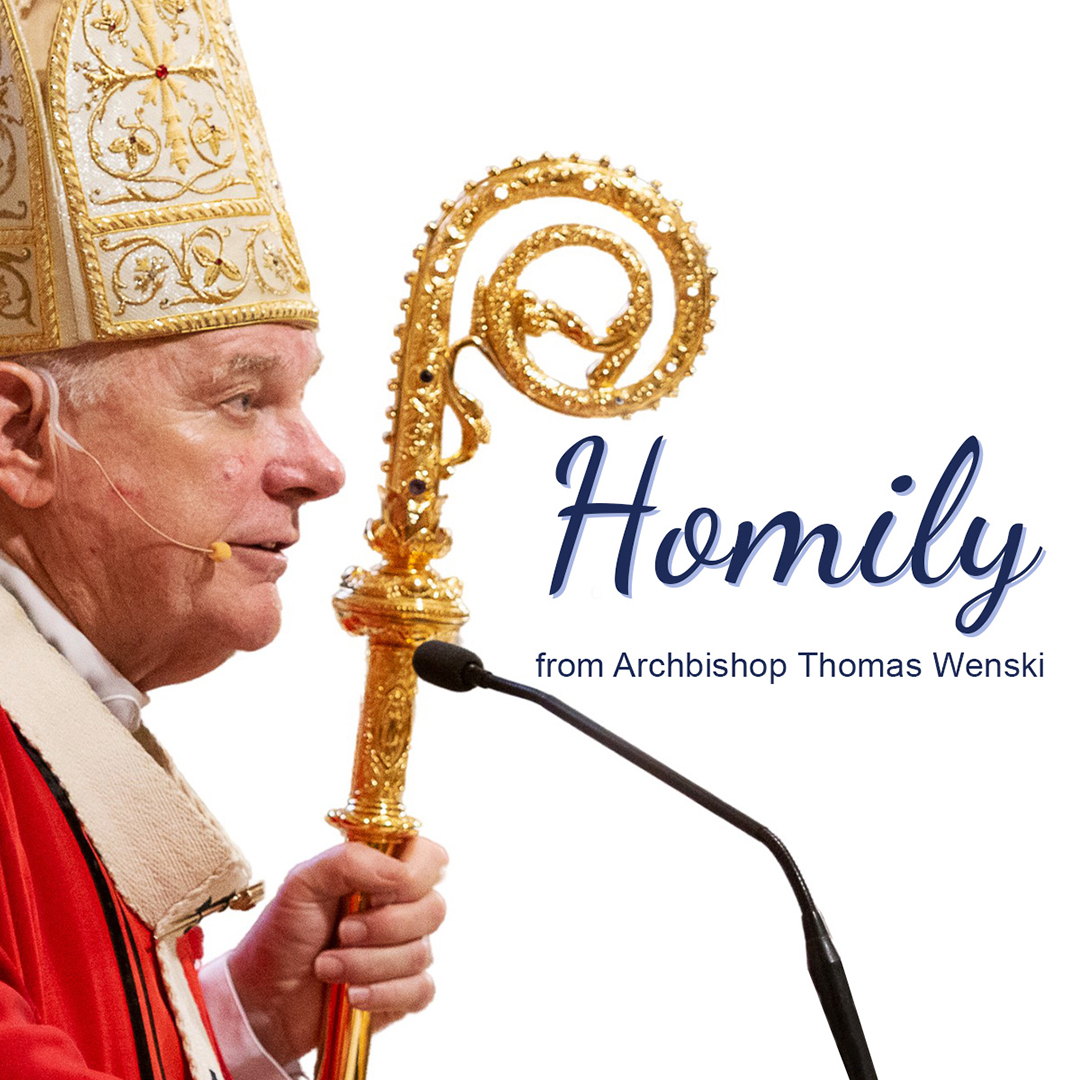By Archbishop Thomas Wenski - The Archdiocese of Miami
Archbishop Thomas Wenski preached this homily for the Fourth Sunday of Easter at St. Justin Martyr Church, in Key Largo
I remember a story of a young priest who was celebrating Mass for the school children and this gospel was the gospel of that Mass. In his homily he decided to engage the children and ask them questions. They tell lawyers never to ask a question during a trial that you don’t know what the answer will be. This priest probably should have listened to that advice. These kids lived in the city and probably never had been on a farm or even seen a sheep – and when he asked them: “What is a shepherd?” most of the kids just looked at him with blank stares – until one kid bravely raised his hand and said, “Father, isn't a shepherd a mean dog?” The boy didn't have any experience of shepherds tending their flocks, but he obviously had a not so happy experience with a German shepherd.
“Pastores dabo vobis, I will give you shepherds”, this was God’s promise spoken through his prophet, Jeremiah. And of course, that promise was fulfilled in Jesus Christ. Jesus calling himself the “Good Shepherd” was a big deal. And he didn’t mean that he was like a mean dog. But Jesus wasn’t just making a clever analogy to life on a Palestinian farm. Since, the Old Testament speaks of God as being the “shepherd” of his people, Israel, Jesus was staking out his claim to be the Messiah and the Son of God. The Jewish leaders suspected that that was precisely what he was doing and of course, they must have felt stung when he spoke about the hired hands who don’t really care for the sheep – for he was talking about them.
Today, the Fourth Sunday of Easter, “Good Shepherd” Sunday is also observed in many places as Vocation Sunday. And how better to describe the essence of the vocation to the priesthood than by saying that a priest is called to shepherd God’s people and lead them by his teaching and example to the refreshment of their souls by sharing with them the Word of God and the Sacraments of the Church, the sheepfold where the sheep come to recognize their shepherd’s voice and follow it.
Priests who in communion with Jesus act in his name and in his sight, as a shepherd of souls, must like Jesus being willing to lay down their lives for their sheep – not just hired hands. St. Augustine, living in 4th Century North Africa, as the Roman Empire collapsed around him, was not kind to those false shepherds who “when they took the milk and covered themselves with wool, they neglected the sheep” seeking their own cause and not Christ’s.
St. Augustine asked – as many people do today: “But will there be shepherds who seek what is Christ’s and not what is theirs, and will they be found?”
“There will indeed be such shepherds,” he answers, “and they will indeed be found; they are not lacking, nor will they be lacking in the future.”
On May 11th, I will ordain four young men to the priesthood at St, Mary’s Cathedral for the Archdiocese of Miami and on June 1st, at Our Lady of Belen chapel, in Miami, I will ordain another young man a priest for the Jesuits.
Five new priests is certainly good news – especially when there is much talk about a crisis of vocations to the priesthood. And here in the United States, where ordinations continued to be admittedly too few, and our priests are aging, we are rightly concerned.
While we joyfully celebrate those who will soon be ordained, we cannot, at the same time, deny that there is a crisis. But despite conventional wisdom to the contrary, the priest shortage is not the result of celibacy but of a crisis of faith and, in the ascendant secularism of our culture, the closing of the window of man’s mind to infinity or transcendence.
Also, young Americans today, many of whom have suffered the consequences of the divorce of their parents, fear making any long-term commitments. This fear of assuming risks in the face of an apparently uncertain future also accounts for the contemporary crisis in marriage today. In the West (North America and Western Europe), young people caught in a culture of instant gratification and fleeting interests are in no rush to marry, much less enter a seminary or convent. Today in the U.S. there are more adults not married or no longer married than there are married adults. So, we’re not lacking seminarians because young people are rushing to get married.
God does not cease to call – but sometimes the ambient noise can make it hard for the young today to hear the call. All members of Christ’s faithful have an obligation to encourage vocations to the priesthood and religious life.
Priests should not only invite young men to consider a vocation to the priesthood but also attract them by their priestly integrity and joy.
Parents also should be willing to encourage their children when they wish to discern a vocation to the priesthood or consecrated life. Vocations must be cultivated if the numbers are to grow. And that is a task for the entire Catholic community. And so, whenever you see a particularly promising youth, you should also encourage him or her to think about dedicating their lives to God’s service.
In the Archdiocese we are fortunate to have 60 young men studying for the priesthood. Perhaps not all 60 will persevere to ordination, but hopefully most will. Please pray for them – and pray that many more young men will consider serving God’s people as priests. And, if you see someone who seems particularly promising, please ask him to think about it, and more importantly to pray about it.

